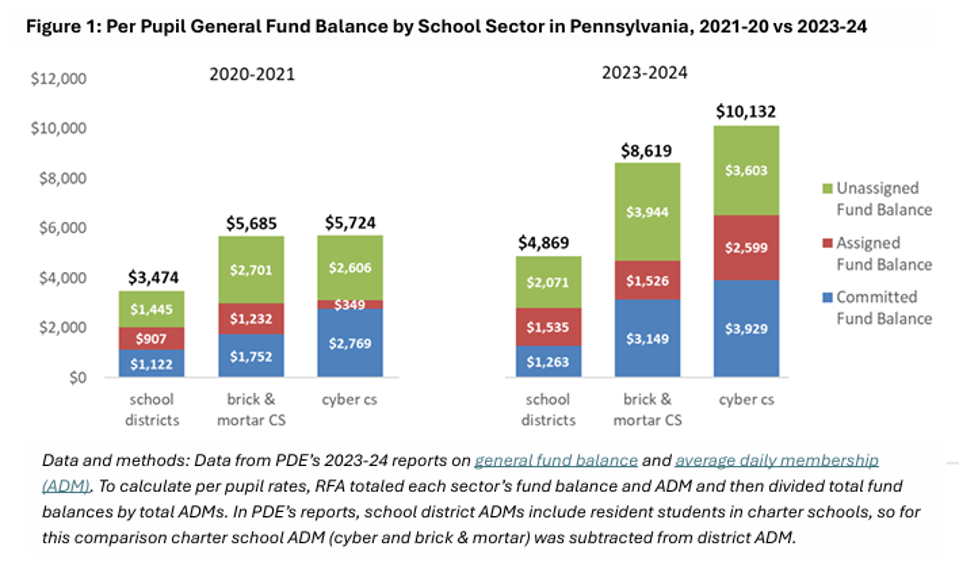As the budget impasse drags on, the state has missed $1.75 billion in payments to school districts. Some school districts are drawing money out of their fund balances (savings accounts) to pay their bills. Districts that lack adequate fund balances must borrow from banks and take out lines of credit to pay their bills. These districts will pay untold millions of dollars in bank fees and interest payments and be forced to reduce the opportunities they provide to students.
Charter and cyber charter schools, on the other hand, are not seeing any interruption in their funding. School districts are required to pay tuition to charter schools whether or not the state budget has been passed.
Given this context, we thought it appropriate to focus our Waste of the Week on a Research for Action report from June titled, “Growing Per Pupil Fund Balances in Pennsylvania’s Cyber Charter Schools,” which documents a truly staggering growth in funding that cyber charters are packing into their fund balances.
RFA found that in the 2023-2024 school year, cyber charter school per-pupil fund balances averaged $10,132 per student, more than twice the school district fund balance of $ 4,869 per student.

The RFA report notes that Commonwealth Charter Academy’s fund balance was very low and referred to the recent auditor general’s report, which explained,
“Commonwealth Charter Academy (CCA) transferred $354.3 million from its General Fund to its Capital Projects Fund during the audit period, of which $196 million was spent to purchase and/or renovate 21 buildings which could be considered uncommon for a public cyber charter school.”
In other words, instead of packing hundreds of millions of excess tax dollars from school districts into bank accounts, CCA spent hundreds of millions of excess tax dollars from school districts to continue building its real estate empire across the commonwealth.
State law limits the unassigned fund balance that school districts are allowed to hold. The PA House has passed bipartisan legislation (HB 1500) that would both place the same limit on cyber charter schools and return excess funding that cybers are hoarding to districts, where it could be invested in educating students. The Republican-controlled Senate has taken no action on this legislation.
As lawmakers continue to negotiate the budget and cyber charter reforms remain uncertain, we would like Harrisburg lawmakers who are blocking cyber charter funding reforms to respond to the questions posed by Peter Greene in a Forbes article focused on the RFA report,
“If operating margins are so narrow for cyber charters, why do they have so much money left over to put in the bank (as well as spending on other areas like marketing)? And given that all of that money comes from the taxpayers, should cyber charters be allowed to continue to collect such large amounts?”

Recent Comments